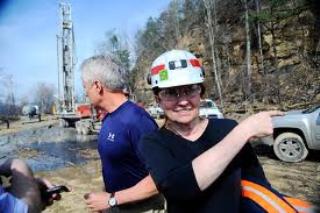Food security and maternal health top UN post-referendum agenda: Lise Grande
January 13, 2010 (JUBA) – The need to provide adequate food security and reduce maternal mortality rates among the southern Sudanese population remain at the top of the UNs post-referendum plan, Lise Grande, the Deputy Resident and Humanitarian Coordination for the semi-autonomous region has revealed.

“As you know, Southern Sudan’s maternal mortality rates are currently among the highest in the world. In the same way, food security challenges are immense. It is in this regard that we intend to make these issues a priority during the post-referendum period,” Grande said.
The UN, she noted, has already earmarked funds for the emergency food needs of an estimated 1.4 million southerners.
Last year, the organization launched an appeal for about $64m in emergency humanitarian funds as part of its post-referendum contingency plan. The initiative, dubbed, the Common Humanitarian Fund attracted contributions from the US, EU, UK, Canada, Norway, and others.
In addition, Grande said, the UN will also assist in improving education, capacity building, and addressing the rule of law.
About $50m, she clarified, was reportedly mobilized to address the core-functions of the government.
On the situation of southern Sudanese returnees, Grande lauded the southern Sudanese government for its timely intervention into their plight, by providing funds and manpower needed for their return and resettlement.
Grande, however, cited security concerns, political questions, oil revenue re-distribution issues and the unresolved north-south border demarcation as some of the challenges likely to be faced during the post-referendum era.
“Unless some of these outstanding issues are amicably addressed, we are still bound to face enormous challenges ahead of us all,” Grande told Sudan Tribune.
(ST)
